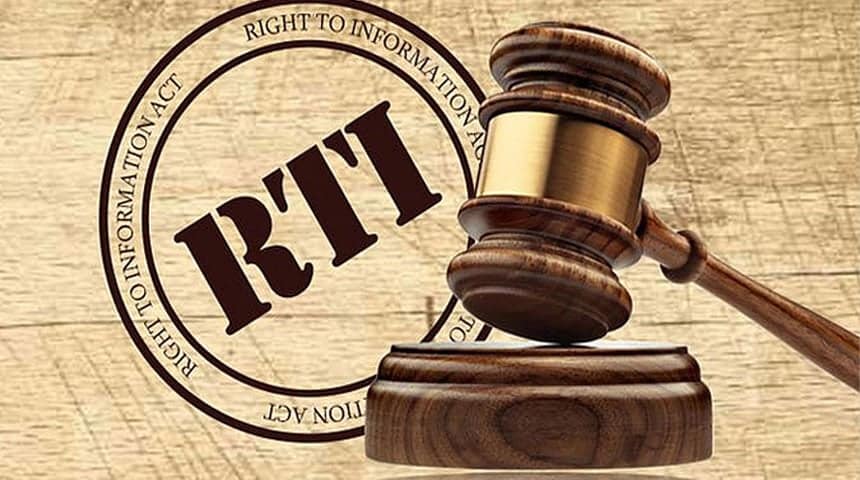In the throes of the information age, precise data sustains a healthy democracy and saves the political economy. Without access to a broad range of credible information and accurate statistics, the public is limited in its ability to engage with power and policy. Recent outrage over the debate on whether the Digital Personal Data Protection Rules, 2025, dilute the RTI Act has been spanning headlines and fuelling concerns among media professionals about the repercussions for civic engagement and data-driven policy.
Here, we enter a tale of two policies—and of the trade-offs that must be made between individual privacy and public intelligentsia.
The RTI Act: A Pillar of Democratic Accountability
The RTI Act, enacted in 2005, is a landmark piece of legislation that aims to improve government transparency. It has empowered citizens to access and request information on the use of public funds, the execution of welfare schemes, project progress, and administrative decisions taken by government departments. It has been a valuable apparatus for citizens to address their concerns, hold public officials accountable, and expose governmental inefficiency and corruption.
Structurally, the purview of the DPDP and RTI diverges, with the RTI focusing on the institutional and government-centric aspects of public knowledge, typically concerning the internal functioning of government and public offices. The DPDP addresses how organisations handle individuals’ personal data to safeguard their privacy—while there may be some overlap, the objectives of these two policies are fundamentally disparate. The DPDP and RTI tackle distinctive, critical issues within the digital age—ensuring government transparency while safeguarding citizens’ personal data are twin imperatives for modern democracies, both flowing from the Constitution.
The DPDP Act: Privacy Protection or Political Shield?
In theory, both these policies should be complementary, as they are designed to uphold autonomous constitutional rights. However, the BJP has received caustic backlash for systematically weakening the RTI and refusing to take public accountability for their regressive, divisive policies, with UPA’s general secretary in charge of communications, Jairam Ramesh, stating that “For the BJP, the RTI means Right to Intimidate.” Fortifying these allegations, the shocking fact that over 100 RTI activists have been murdered since 2014 has created a climate of fear that threatens the very foundation of transparent governance. Ramesh offers multiple reasons for this methodical underscoring of the RTI. According to him, “The first was the order by the Chief Information Commissioner directing disclosure of Prime Minister Narendra Modi’s MA degree in ‘Entire Political Science’ under RTI.” The second instance was the discrediting of the PM’s claim that there were “crores of fake ration cards” in the country, by RTI responses.
Every citizen has the right to claim information from public authorities under the Act, and public authorities are obligated to provide the sought information (with certain exceptions).
Additionally, the RTI applications helped bring to light the stark deceit of the much-lauded benefits of demonetisation in curbing black money or counterfeit currency. “The RTI application revealed that just four hours before the demonetisation announcement made by Prime Minister Modi, the Central Board of the Reserve Bank of India had concluded that the demonetisation would not help in curbing black money or fake currency in any way,” he said. He added that RTI disclosures had caused the government “multiple embarrassments”, including revelations that the Reserve Bank of India had already sent to the Prime Minister’s Office a list of the 20 top wilful loan defaulters in the country. “It was revealed through the RTI that no black money had come back from abroad as had been promised by Prime Minister Modi ahead of the 2014 General Elections,” Mr Ramesh said.
The provisions of the DPDP Act are components of a carefully systematic approach for the reigning government to skirt transparency questions and thus prevent shattering the glass facade of a healthy democracy. The National Campaign for the People’s Right to Information (NCPRI) has asserted that the Digital Personal Data Protection Act, 2023, and its draft rules were “extremely problematic” and did not offer protection to journalists from being identified by people whose malfeasance they uncover. The NCPRI has strongly opposed the DPDP Act’s weakening of Section 8(1)(j) of the RTI Act. By expanding the definition of ‘personal information,’ the law creates sweeping new grounds for denying access to public records, including voter lists, government fund use, and expenditure details.
Constitutional Imperatives vs. Political Expediency
“This amendment has opened the doors to conceal public information. RTI became a lifeline for the poor and marginalised, giving them access to rights related to ration distribution, pensions, arrears, scholarships but the BJP is now blocking it all,” alleged the Telangana Pradesh Congress Committee (TPCC) president Mahesh Kumar Goud, accusing the BJP of curtailing the independence of Information Commissions by bringing their tenure and service conditions, raising the susceptibility of election commissioners to government pressure.
Within Noam Chomsky’s Framework of Justice, a critique of power through an analysis of the facets of an unjust system that fuel oppression and manipulation, he argues that justice requires the free flow of information and the public’s ability to make informed decisions. The RTI Act has been instrumental in strengthening democracy, combating corruption, and fuelling public participation and interaction. It has helped uncover myriad major scams, including the Adarsh Society Scam, the 2G scam, the Commonwealth Games Scam, and the Indian Red Cross Society Scam, earning India the 4th position among 111 countries in global rankings of freedom of information laws in 2016.
Additionally, every citizen has the right to claim information from public authorities under the Act, and public authorities are obligated to provide the sought information (with certain exceptions). However, the RTI Act has gone from a powerful instrument of the political economy to a policy on life support, with the government routinely rejecting and denying RTI applications on misguided, ill-conceived policies.
The systematic weakening of the RTI Act, coupled with the climate of intimidation facing transparency activists, threatens to hollow out the very foundations of participatory democracy.
During demonetisation, information was withheld on the specious grounds that disclosing the same would “prejudicially affect the sovereignty and integrity of India, the security, strategic, scientific or economic interests of the state, relation with foreign state or lead to incitement of an offence,” with the trend continuing through the Covid-19 pandemic through a blatant refusal of further transparency regarding the PM CARES fund.
The RTI Act has also faced several obstacles: 58% of the 374 information commissioners appointed in the 29 SICs since its inception are former government bureaucrats. In comparison, the number of RTI pleas rose by 83% and the number of Central Public Information Officers rose by only 13%. With an average of more than a year for the State Information Commissions to dispose of complaints/appeals, it seems that the RTI Act is dying a slow, intentional death.
Democratic transparency and individual privacy need not be mutually exclusive—yet India’s current trajectory suggests a dangerous prioritisation of opacity over accountability. The systematic weakening of the RTI Act, coupled with the climate of intimidation facing transparency activists, threatens to hollow out the very foundations of participatory democracy.




